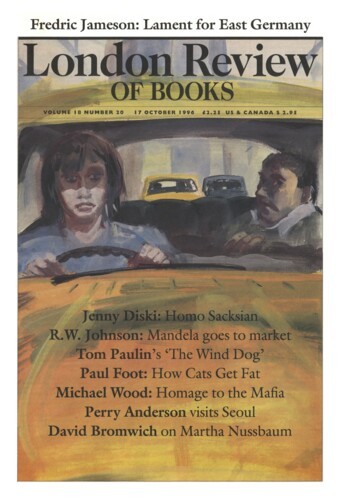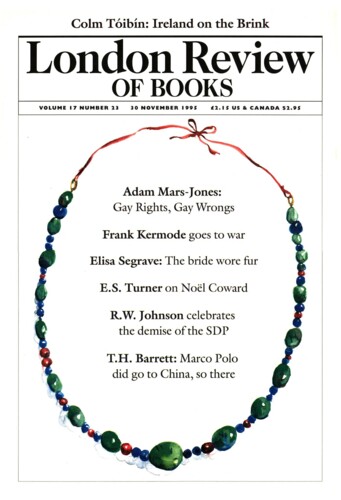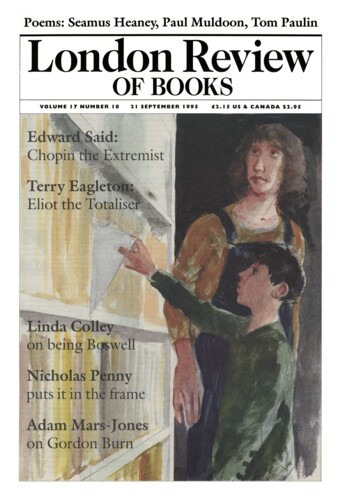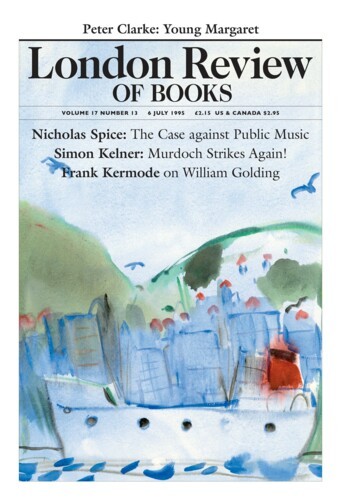Smart Alec
Peter Clarke, 17 October 1996
He was famously (to use LRB-speak) a 14th earl, and this he essentially remained. He had inherited the title from his father, the 13th Earl, and lived at the ancestral family seat, the Hirsel, near Coldstream, to his death at the age of 92; whereupon he was duly succeeded by his son as 15th earl. Indeed, had the Peerage Bill of 1963 not been amended so as to provide that a hereditary peerage itself was not extinguished if the current peer decided to disclaim the title, the 14th Earl of Home would not have agreed to avail himself of the new procedure, even to become prime minister of the United Kingdom. There was too much at stake. The family’s old motto said it all: ‘A Home, a Home, a Home.’ Brought up to believe that there’s no place like it, no race like it, Alec would hardly have let the family down, amid the hubbub of a leadership contest which turned the coroneted head of another contender, the once and future Lord Hailsham, by unmasking him as nothing more than a professional politician out of the chorus line in Iolanthe.





